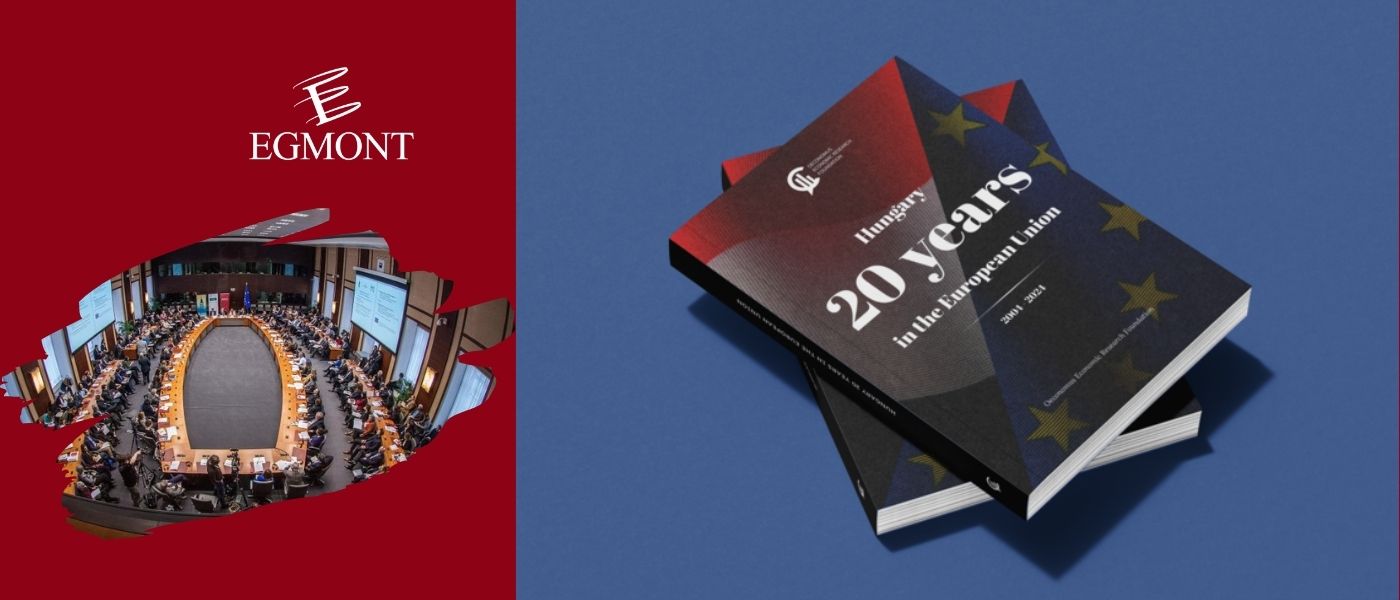Enlargements and the Future of the European Union

Date
15 September 2025
Time
14:30-17:00
Location
Egmont Palace, rue des Petit Carmes 8 bis , 1000 Brussels
Type of Event
Report presentation
Organisation
Egmont Institute
The European Affairs Programme at the Egmont Institute hosted a panel discussion on the 20th anniversary of the 2004 EU enlargement, with a particular focus on Hungary’s two decades of membership. The session was organised in partnership with the Hungarian Oeconomus Economic Research Foundation, following the publication of its latest report, “Hungary: 20 Years in the European Union”. The event brought together senior diplomats, policy analysts, and civil society representatives to reflect on the enlargement’s institutional legacy and future implications for EU readiness.
The 2004 enlargement was a defining moment for the EU, marking its first major expansion after the Cold War. The accession of Hungary and nine other countries signaled a bold step toward integrating Central and Eastern Europe, driving economic growth, higher living standards, and significant structural reforms.
The discussion unfolded in the context of renewed political focus on EU enlargement, particularly in light of the Belgian Presidency’s enlargement roadmap and the evolving status of candidate countries in the Western Balkans and Eastern Europe. Despite the success stories of the 2004 wave, participants noted that no comparable institutional reform had followed the Lisbon Treaty, despite the EU facing major crises in the interim, including the global financial downturn, the Syrian refugee influx, and the COVID-19 pandemic.
The new report reflected on Hungary’s largely positive experience of growth and convergence since accession. However, it also highlighted broader challenges across Europe, including uneven outcomes, enlargement fatigue, and governance gaps slowing further progress.
Key speakers included Dr. Károly Grúber (COELA Delegate, Permanent Representation of Hungary), Mr. Frank Arnauts (Senior Coordinator for the Future of Europe, Belgian Ministry of Foreign Affairs), Ms. Berta López Domènech (Policy Analyst, EPC), and Ms. Jana Faktor Juzová (Advocacy Manager, EUCRTA). Discussions explored the enduring relevance of the 2004 enlargement for current strategic foresight, institutional reform capacity, and the inclusion of civil society in shaping future enlargements.
The session underscored that while the 2004 enlargement was a geopolitical success, it also exposed limits in the EU’s institutional readiness. This is a lesson that remains highly relevant today. Looking ahead, participants called for a renewed debate on how to align future enlargements with reforms that ensure both effectiveness and legitimacy within the Union’s core structures.
Agenda – 15 September 2025
14:15 – 14:30: Arrival of participants
14:30 – 14:45: Initial Presentation
14:45 – 15:15: Panel Discussion
15:15 – 17:00: Q&A
16:40 – 17:00: Concluding remarks
In cooperation with
